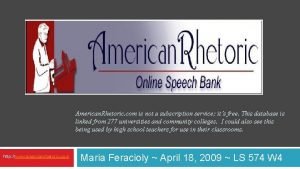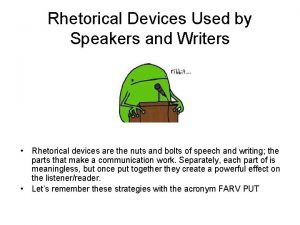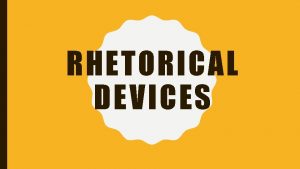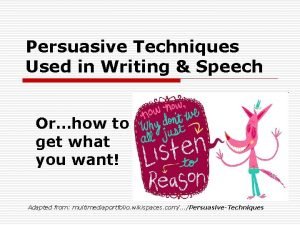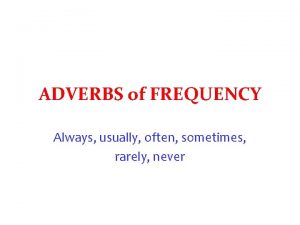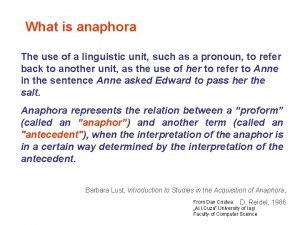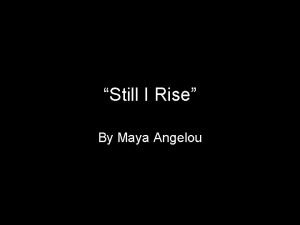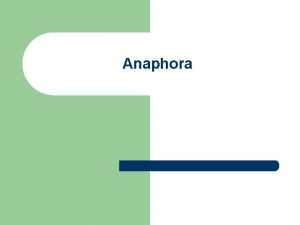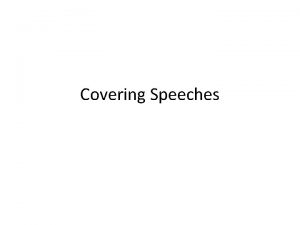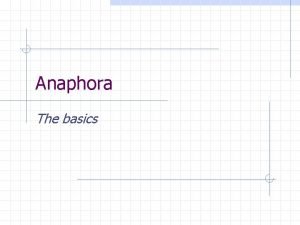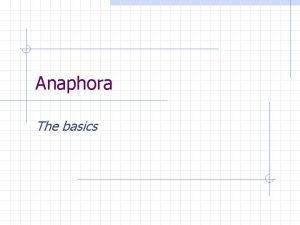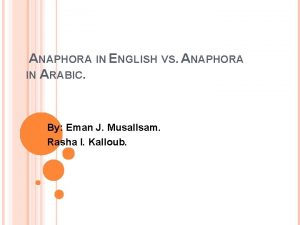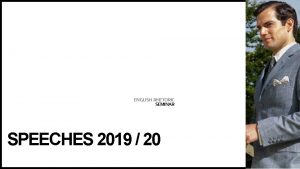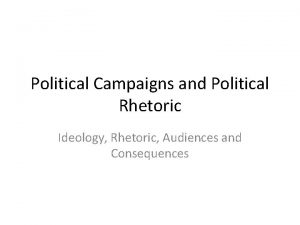Rhetoric Devices Anaphora Often used in political speeches








- Slides: 8

Rhetoric Devices

Anaphora Often used in political speeches and occasionally in prose and poetry, anaphora is the repetition of a word or words at the beginning of each sentence or line. Anaphora, possibly the oldest literary device, has its roots in Biblical Psalms used to emphasize certain words or phrases. Gradually, Elizabethan and Romantic writers brought this device into practice. Apart from the function of giving prominence to certain ideas, the use of anaphora in literature adds rhythm, thus making it more pleasurable to read, and easier to remember. As a literary device, anaphora serves the purpose of giving artistic effect to passages of prose and poetry. As a rhetorical device, anaphora is used to appeal to the emotions of the audience, in order to persuade, inspire, motivate, and encourage them.

Examples of Anaphora Examples: “O LORD, rebuke me not in thine anger, neither chasten me in thy hot displeasure. Have mercy upon me, O LORD; for I am weak: O LORD, heal me; for my bones are vexed. My soul is also sore vexed: but thou, O LORD, how long? ” “Tell them to be good, tell them to follow their elders, and tell them to mind their manners. ” “Go back to Mississippi, go back to Alabama, go back to South Carolina, go back to Georgia, go back to Louisiana, go back to the slums and ghettos of our northern cities, knowing that somehow this situation can and will be changed. ”

Epistrophe derived from a Greek word that means turning upon, which indicates the same word returns at the end of each sentence. is a stylistic device that can be defined as the repetition of phrases or words at the end of the clauses or sentences. It is also called epiphora. examples are frequently found in literary pieces, in persuasive writing and speeches. Epistrophe is the opposite of anaphora

Why use it? The rhetorical function of this stylistic device is to give a striking emphasis to an idea, a thought or a passage. The repetition helps in making the words memorable and pleasurable due to the regular rhyme scheme. Also, it furnishes the artistic effects both in prose as well as in poetry. In addition, it lends rhythm to the text and appeals to the emotions of the readers.

Examples BRUTUS: “Who is here so base that would be a bondman? If any, speak; for him have I offended. Who is here so rude that would not be a Roman? If any, speak; for him have I offended. Who is here so vile that will not love his country? If any, speak; for him have I offended…. ”

Syntheton two words are joined by a conjunction for emphasis. Examples: Bread and wine God and man

Classwork Look back at Barack Obama’s 2013 inaugural address and identify the following rhetorical devices: Anaphora (3 examples) Epistrophe (3 examples) Syntheton (3 examples) What effect do these rhetorical devices have on the reader/listener? (6 -8 sentences)
